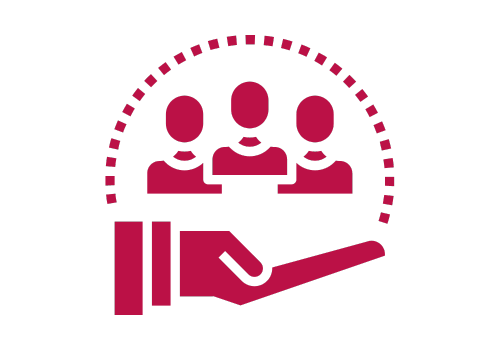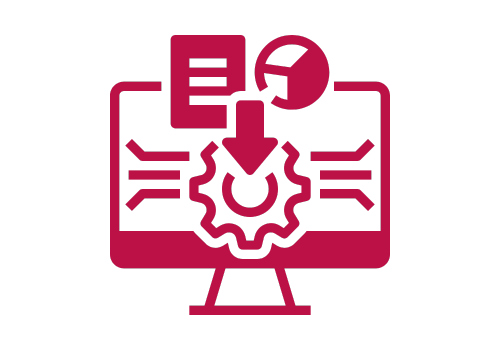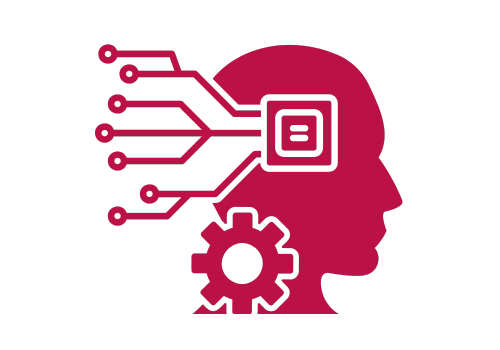Managing Work and Family Life
Navigating Dual Responsibilities with Grace
Why This Training?
Achieving a harmonious balance between work and family has been a persistent challenge for many, more so in our fast-paced, demanding world. Especially for women, the weight of managing both professional aspirations and familial responsibilities can be daunting. This training is tailored to provide you with actionable insights, strategies, and tools to navigate these dual responsibilities with grace and efficiency.
Duration: 3 Hours (online / virtual live session)

Who Should Attend?
Working mothers seeking effective strategies to manage their dual roles.
Women in leadership roles looking to foster a supportive environment for their teams.
BAnyone interested in understanding the intricacies of work-family dynamics and seeking ways to achieve a healthier balance.
Women in leadership roles looking to foster a supportive environment for their teams.
BAnyone interested in understanding the intricacies of work-family dynamics and seeking ways to achieve a healthier balance.

Course Highlights
Holistic Understanding: Delve deep into the dynamics of work-life balance, its historical context, and the unique challenges faced by women.
Actionable Strategies: Equip yourself with prioritization techniques, productivity hacks, and boundary-setting tools to ensure both work and family life are handled efficiently.
Actionable Strategies: Equip yourself with prioritization techniques, productivity hacks, and boundary-setting tools to ensure both work and family life are handled efficiently.
See more
Empowerment through Communication: Learn to establish clear communication lines with both family and colleagues, ensuring mutual understanding and respect.
Self-Care and Mental Well-being: Emphasize the importance of taking time for oneself, recognizing signs of burnout, and implementing preventive strategies.
Build and Rely on Support Networks: Understand the significance of delegating, leaning on community support, and fostering a network that champions work-life balance.
Self-Care and Mental Well-being: Emphasize the importance of taking time for oneself, recognizing signs of burnout, and implementing preventive strategies.
Build and Rely on Support Networks: Understand the significance of delegating, leaning on community support, and fostering a network that champions work-life balance.

Pre-requisites
An open mindset to discuss and reflect on personal experiences (participation is optional).
A willingness to engage with and learn from peers.
Basic understanding of time management and productivity concepts would be beneficial, though not mandatory.
A willingness to engage with and learn from peers.
Basic understanding of time management and productivity concepts would be beneficial, though not mandatory.
Training Materials Needed by Participants
A notebook or digital device for taking notes.
Personal real-life scenarios or challenges they are willing to discuss (anonymously, if preferred).
Any productivity tools or apps they currently use or have heard of (for discussion and evaluation).
Write your awesome label here.
Training Content
Managing Work and Family Life
Session 1: Understanding the Dynamics
Introduction to Work-Life Balance:
- Defining "work-life balance" in contemporary times.
- Historical perspective: Changes over the decades.
The Dual Burden:
- Concept of "second shift": Handling work and domestic responsibilities.
- Psychological and emotional implications.
Individual Needs Analysis:
- Identifying personal challenges.
- Sharing personal experiences (optional for participants).
Session 2: Strategies for a Harmonious Balance
Prioritization Techniques:
- The Eisenhower Box: Urgent vs. Important.
- Setting realistic expectations at work and home.
Time Management and Productivity Hacks:
- Techniques like the Pomodoro Technique, time blocking, etc.
- Setting boundaries: When work stops, and personal life begins.
Communication Essentials:
- Transparent discussions with family and colleagues.
- Establishing "No Interruption Zones" and their importance.
Session 3: Sustaining the Balance & Seeking Support
Self-Care and Mental Well-being:
- Importance of "me-time" and techniques to incorporate it daily.
- Recognizing signs of burnout and taking preventive measures.
Building a Support Network:
- Importance of delegating tasks at work and home.
- Engaging with community groups and networks for support.
Continuous Adaptation:
- Re-evaluating work-life boundaries as situations change.
- Celebrating small victories and staying motivated for the long run.
WOMEN AI ACADEMY
Women AI Academy is a gender-equality and technology driven learning & development organization
Site Terms & Info
ETHOS AI Training & Consulting GmbH
Weihenstephanerstr.1281673
Munich-Germany
We are driven by the vision of making AI both ethical and accessible to everyone
Copyright © 2024 Brought to you by Ethos ai AI Training & Consultancy GmbH
Ali Hessami is currently the Director of R&D and Innovation at Vega Systems, London, UK. He has an extensive track record in systems assurance and safety, security, sustainability, knowledge assessment/management methodologies. He has a background in the design and development of advanced control systems for business and safety-critical industrial applications.
Hessami represents the UK on the European Committee for Electrotechnical Standardization (CENELEC) & International Electrotechnical Commission (IEC) – safety systems, hardware & software standards committees. He was appointed by CENELEC as convener of several Working Groups for review of EN50128 Safety-Critical Software Standard and update and restructuring of the software, hardware, and system safety standards in CENELEC.
Ali is also a member of Cyber Security Standardisation SGA16, SG24, and WG26 Groups and started and chairs the IEEE Special Interest Group in Humanitarian Technologies and the Systems Council Chapters in the UK and Ireland Section. In 2017 Ali joined the IEEE Standards Association (SA), initially as a committee member for the new landmark IEEE 7000 standard focused on “Addressing Ethical Concerns in System Design.” He was subsequently appointed as the Technical Editor and later the Chair of P7000 working group. In November 2018, he was appointed as the VC and Process Architect of the IEEE’s global Ethics Certification Programme for Autonomous & Intelligent Systems (ECPAIS).
Trish advises and trains organisations internationally on Responsible AI (AI/data ethics, policy, governance), and Corporate Digital Responsibility.
Patricia has 20 years’ experience as a lawyer in data, technology and regulatory/government affairs and is a registered Solicitor in England and Wales, and the Republic of Ireland. She has authored and edited several works on law and regulation, policy, ethics, and AI.
She is an expert advisor on the Ethics Committee to the UK’s Digital Catapult Machine Intelligence Garage working with AI startups, is a Maestro (a title only given to 3 people in the world) and expert advisor “Maestro” on the IEEE’s CertifAIEd (previously known as ECPAIS) ethical certification panel, sits on IEEE’s P7003 (algorithmic bias)/P2247.4 (adaptive instructional systems)/P7010.1 (AI and ESG/UN SDGS) standards programmes, is a ForHumanity Fellow working on Independent Audit of AI Systems, is Chair of the Society for Computers and Law, and is a non-exec director on the Board of iTechlaw and on the Board of Women Leading in AI. Until 2021, Patricia was on the RSA’s online harms advisory panel, whose work contributed to the UK’s Online Safety Bill.
Trish is also a linguist and speaks fluently English, French, and German.
In 2021, Patricia was listed on the 100 Brilliant Women in AI Ethics™ and named on Computer Weekly’s longlist as one of the Most Influential Women in UK Technology in 2021.

